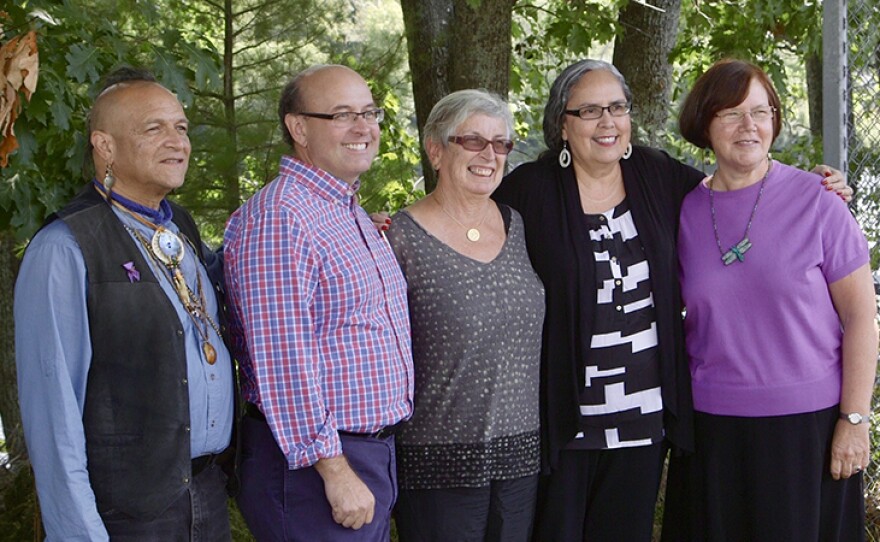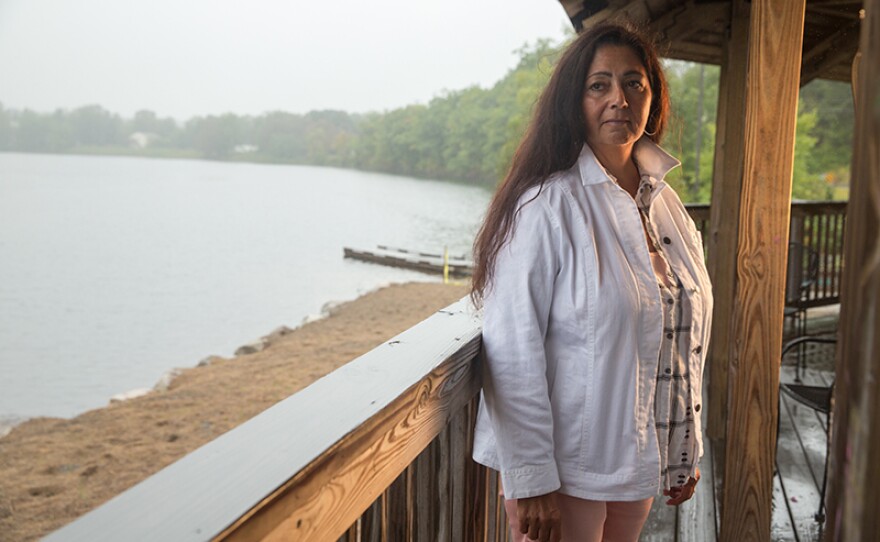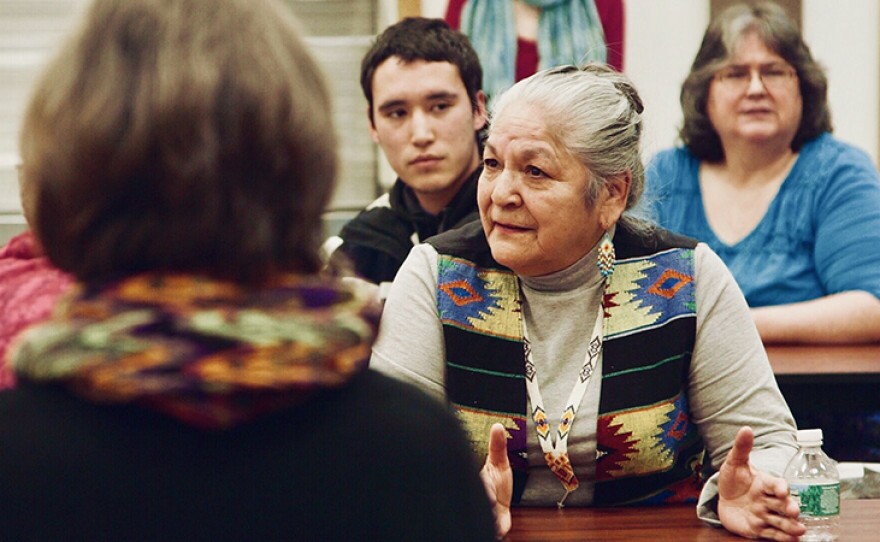—The untold story and devastating impacts of Indigenous child removal in the U.S.—
“Dawnland” reveals the untold story of Indigenous child removal in the United States through the first government-endorsed truth and reconciliation commission (TRC) in the nation, tasked with investigating the devastating impact of Maine’s child welfare practices on Native American communities.
With exclusive access to this groundbreaking process and never-before-seen footage, “Dawnland” bears witness to intimate, sacred moments of truth-telling and healing.
Directed by Adam Mazo and Ben Pender-Cudlip, the film premiered on INDEPENDENT LENS in November 2018 as part of Native American Heritage Month programming.
For most of the 20th century, government agents systematically forced Native American children from their homes and placed them with white families.

As recently as the 1970s, one in four Native children nationwide were living in non-Native foster care, adoptive homes, or boarding schools.
Many children experienced shattering emotional and physical harm by adults who mistreated them and tried to erase their cultural identity.
Now, for the first time, they are being asked to share their stories.
The historic investigation by the Maine Wabanaki-State Child Welfare Truth and Reconciliation Commission represented a groundbreaking moment in the history of tribal-state relations.

From 2013 to 2015, Native and non-Native commissioners traveled across Maine, gathering testimony about the agonizing impacts of the state’s child welfare practices on families in Maliseet, Micmac, Passamaquoddy, and Penobscot tribal communities, which together comprise the Wabanaki people.
The TRC discovered that state power continues to be used to break up families, threatening the very existence of the Wabanaki people.
Is it possible to right this wrong and turn around a broken child welfare system?

“Dawnland” examines the immense challenges faced by the commission as it works toward truth, reconciliation, and the survival of all Indigenous peoples.
By exploring what happened in Maine, the film also provides the opportunity to raise awareness about this nationwide issue, which continues to impact families and children.

“As America struggles with the issue of forced separation of children from their parents, it may surprise many people to learn that the recent events happening on our Mexican border are just the latest chapter in the U.S. government’s under-reported history of using children as a pawn for political gain,” said Lois Vossen, INDEPENDENT LENS executive producer. “It’s like déjà vu when we compare today’s news reports with the rediscovered riveting footage from the 1974 Congressional Hearings that revealed how Wabanaki Indian children were forcibly removed from their homes by Maine’s child welfare system. Dawnland is a living example that those who don’t learn from history are doomed to repeat it.”
Watch On Your Schedule:
This film is currently available to stream on demand with KPBS Passport, video streaming for members supporting KPBS at $60 or more yearly, using your computer, smartphone, tablet, Roku, AppleTV, Amazon Fire or Chromecast. Learn how to activate your benefit now.
Join The Conversation:
INDEPENDENT LENS is on Facebook, Instagram, and you can follow @IndependentLens on Twitter. #IndieLensPBS
"Dawnland" is on Facebook, Instagram, and you can follow @DawnlandMovie on Twitter.
Maine Wabanaki-State Child Welfare Truth and Reconciliation Commission is on Facebook, and you can follow @ME_Wabanaki_TRC on Twitter.
Credits:
Directors: Adam Mazo and Ben Pender-Cudlip. Producers: Adam Mazo and N. Bruce Duthu, J.D. Executive Producers: Heather Rae, Beth Murphy and Shirley K. Sneve. Director of Photography: Ben Pender-Cudlip. Editor: Kristen Salerno. Composer: Jennifer Kreisberg. Learning Director: Mishy Lesser, Ed.D. Impact Producer: Tracy Rector. Senior Advisor: Chris Newell.





